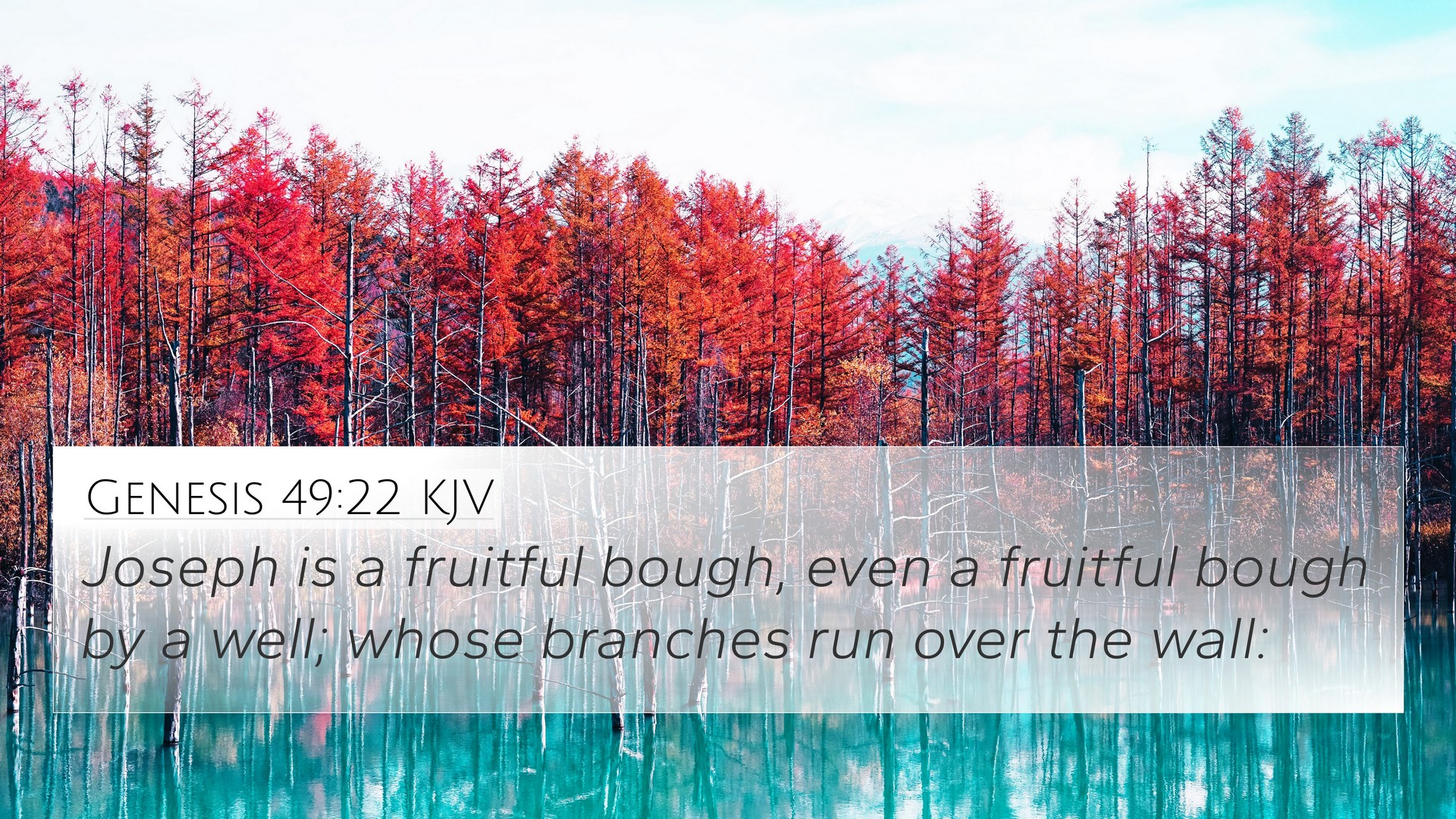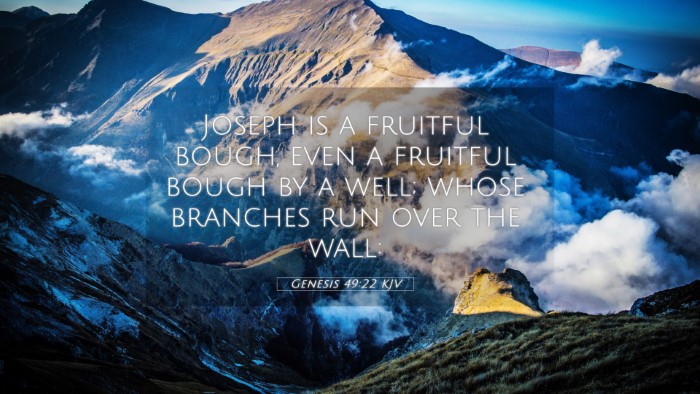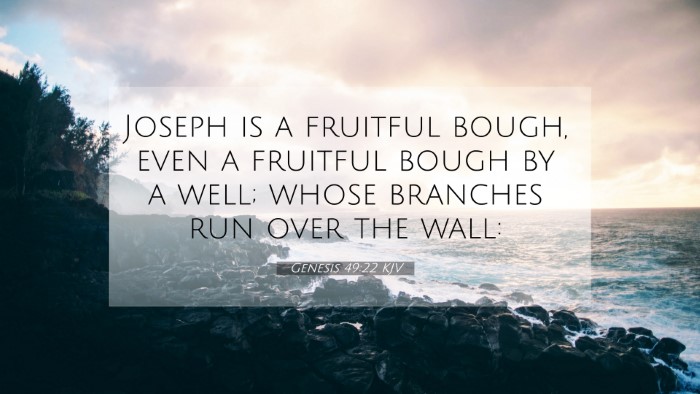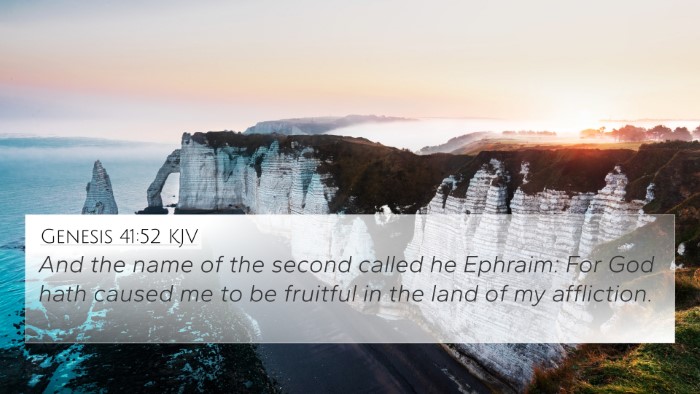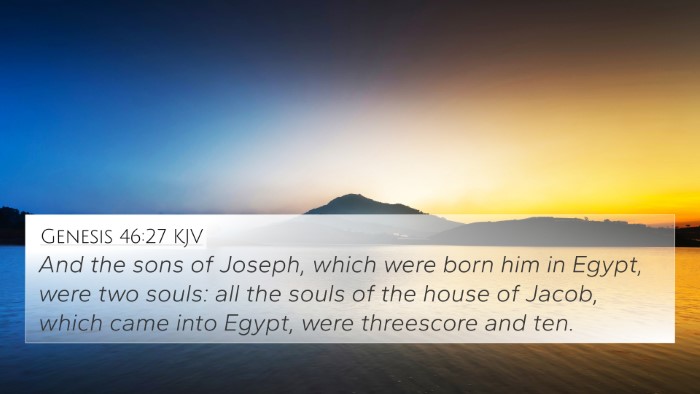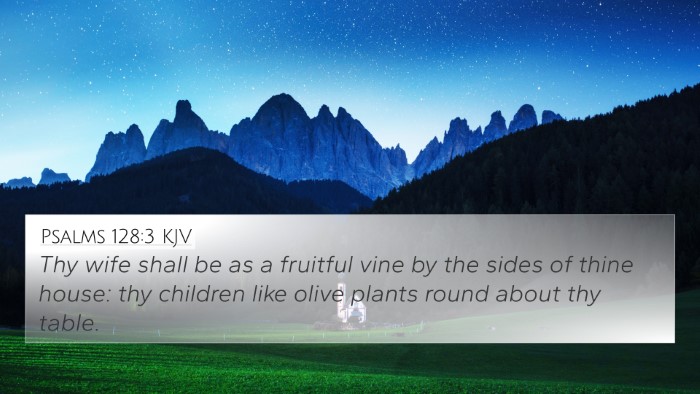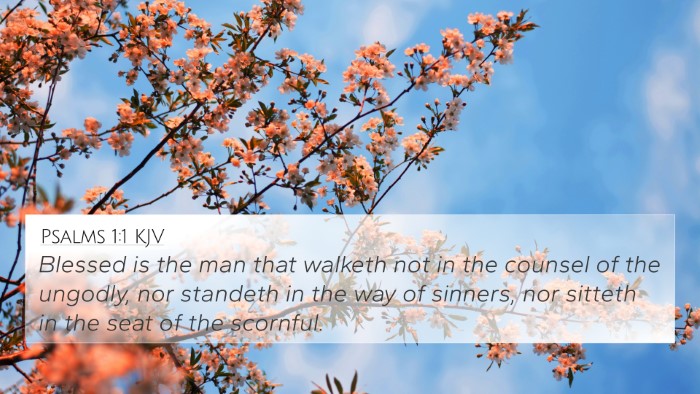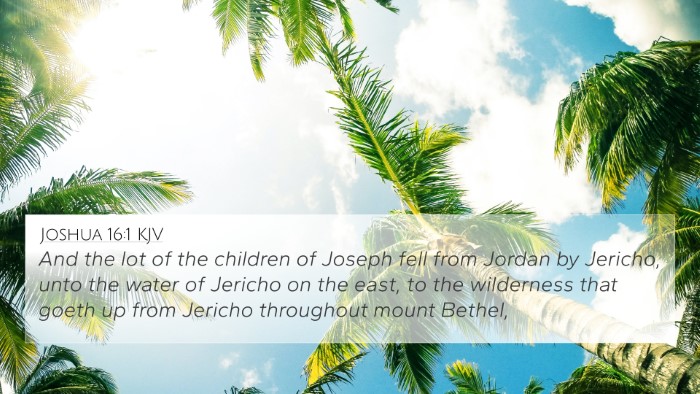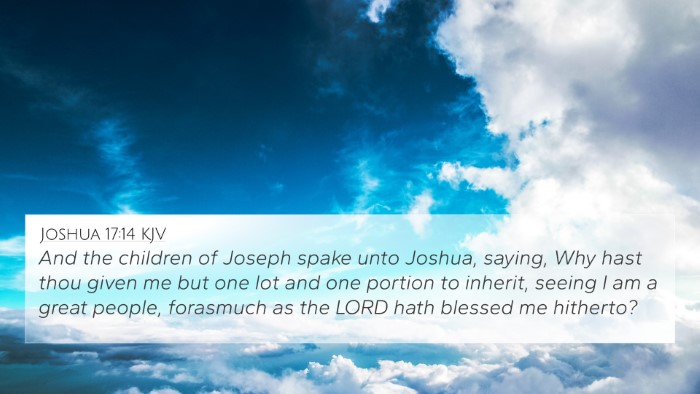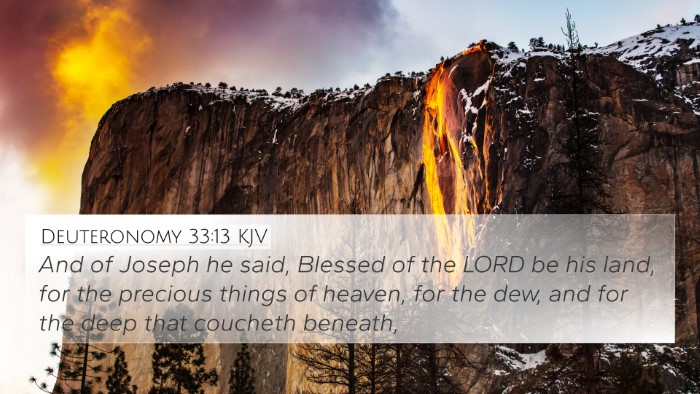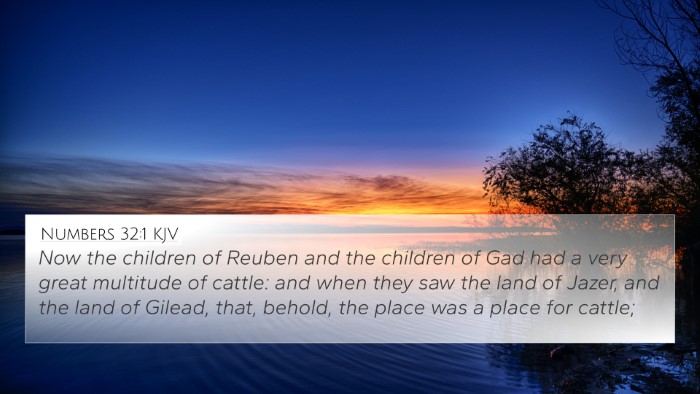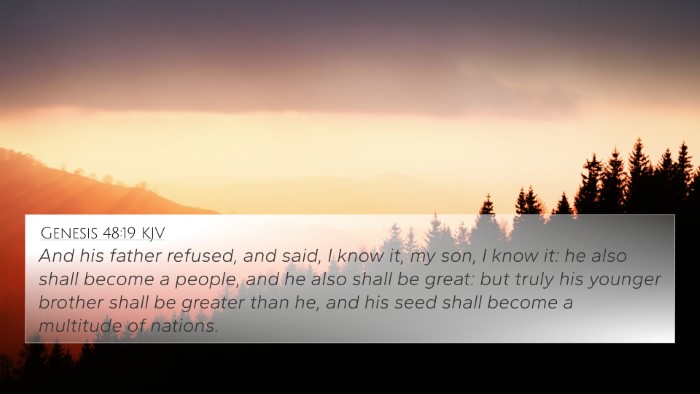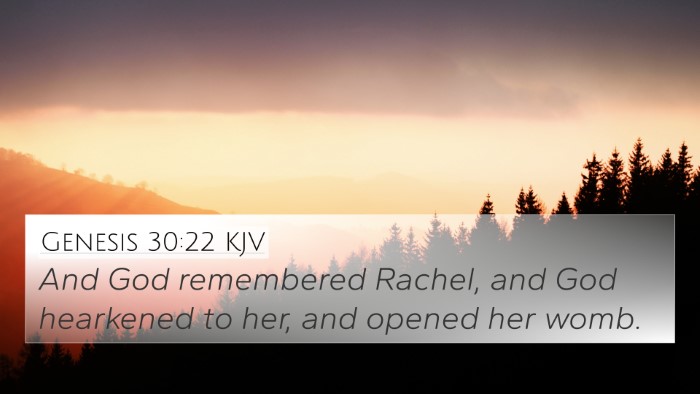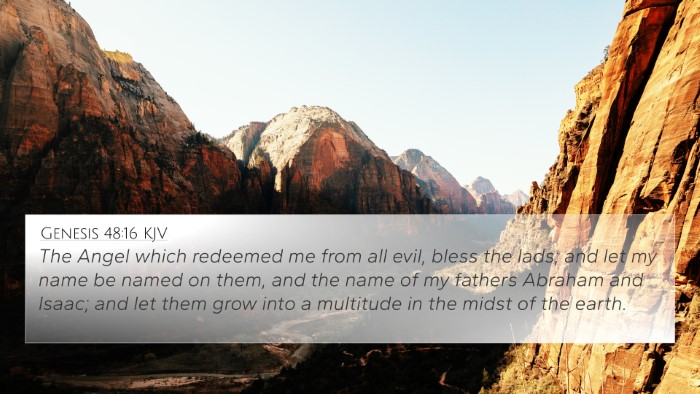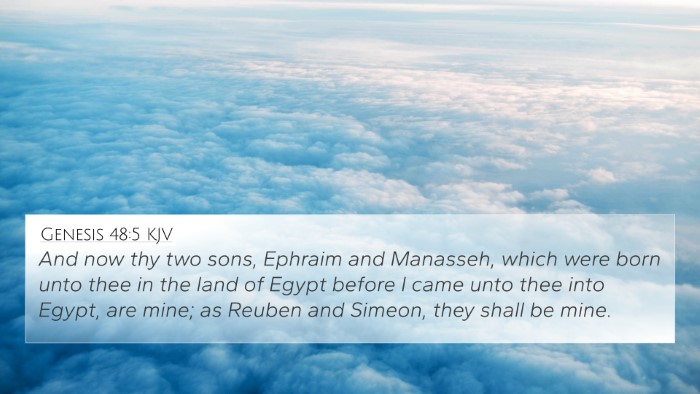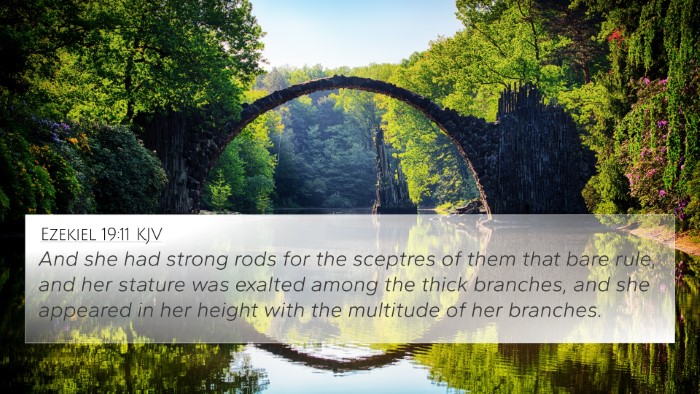Understanding Genesis 49:22
Genesis 49:22 states: "Joseph is a fruitful bough, even a fruitful bough by a well; whose branches run over the wall." This verse is a part of Jacob's blessing to his sons, symbolizing the future of Joseph's descendants and his blessing of prosperity and growth.
Key Themes and Insights
- Symbolism of Joseph: Joseph is depicted as a "fruitful bough," indicating his productivity and success. This metaphor signifies the abundant blessings bestowed upon Joseph and his family.
- Imagery of a Well: The reference to a well suggests a source of sustenance and vitality. Here, Joseph’s strength is derived from God, symbolizing spiritual nourishment.
- Expansion and Influence: The description that his "branches run over the wall" implies that Joseph's influence and prosperity exceed natural boundaries, signifying growth beyond his immediate family into future generations.
- Divine Favor: The verse reflects God's favor resting upon Joseph, suggesting that his life and legacy will yield many blessings.
Commentary Summaries
Matthew Henry's Commentary
Matthew Henry explains that Joseph being a "fruitful bough" represents not only his material prosperity but also his spiritual fruitfulness. He elaborates on the imagery of a well by emphasizing the nourishment that God provides, allowing Joseph to thrive against adversity. Henry notes the generational impact of Joseph's life, as his blessings extend far beyond his immediate circumstances.
Albert Barnes' Commentary
Albert Barnes focuses on the agricultural imagery in the verse, interpreting the "fruitful bough" as indicative of Joseph's powerful and influential line. He points out that the "well" represents both physical and spiritual resources, from which blessings flow abundantly. Barnes emphasizes how Joseph’s legacy of success does not remain confined and instead transcends barriers, impacting a wider community and history.
Adam Clarke's Commentary
Adam Clarke examines the verse from a linguistic and historical perspective, suggesting that Joseph's fruitfulness not only addresses his personal achievements but also prefigures Christ, the ultimate source of life and abundance. Clarke underlines the prophetic nature of this blessing, as it alludes to the future tribes of Israel and their lasting impact among nations.
Bible Verse Cross-References
Genesis 49:22 has connections to several verses that reflect similar themes of prosperity, blessing, and divine favor:
- Genesis 30:23-24: Joseph's birth is tied to Rachel's hope for divine intervention, highlighting his significance in Jacob’s lineage.
- Genesis 41:46: Joseph’s role as Pharoah's assistant illustrates his rise to power and the abundance he brings to Egypt.
- Psalm 1:3: The righteous are likened to trees planted by streams of water, paralleling the imagery of abundance in Genesis 49:22.
- Isaiah 11:1: This verse refers to the shoot coming from the stump of Jesse, likening it to Joseph's fruitful bough as a metaphor for new life and hope.
- John 15:5: Jesus speaks about being the vine, and believers being the branches producing fruit, connecting with the idea of divine sustenance through Joseph.
- Hebrews 7:14: This verse underscores Jesus' lineage from Judah, while Joseph represents the deliverance through his brothers' eventual confession and reconciliation.
- Revelation 22:2: The tree of life yielding fruit signifies the eternal fruitfulness that can be spiritually akin to Joseph’s blessings in Genesis 49:22.
Conclusion
Genesis 49:22 paints a vivid picture of Joseph as a central figure of growth and divine blessing in the narrative of Scripture. By employing cross-referencing tools, such as the Bible concordance and cross-reference guides, one can explore deeper connections within the text, revealing themes of prosperity and divine purpose. Understanding these links not only enriches one’s study of individual verses but also encourages a holistic view of Scripture, fostering an environment for deeper spiritual growth.
Tools for Bible Cross-Referencing
For those interested in further exploring the connections between Bible verses, several recommended methods and resources include:
- Bible Concordance: A powerful tool for locating specific words and themes throughout the Scriptures.
- Cross-reference Bible Study: A methodical approach to comparing and contrasting verses that relate to each other thematically.
- Bible Cross-reference Guide: Resources that help track similar verses, providing context and enhancing understanding.
- Cross-referencing Bible Study Methods: Strategies to identify connections between Old and New Testament teachings, showcasing the unity of biblical messages.
- Comprehensive Bible Cross-reference Materials: Collections of verses aimed to facilitate understanding of God’s overarching plan, anchored in both the Old and New Testaments.
